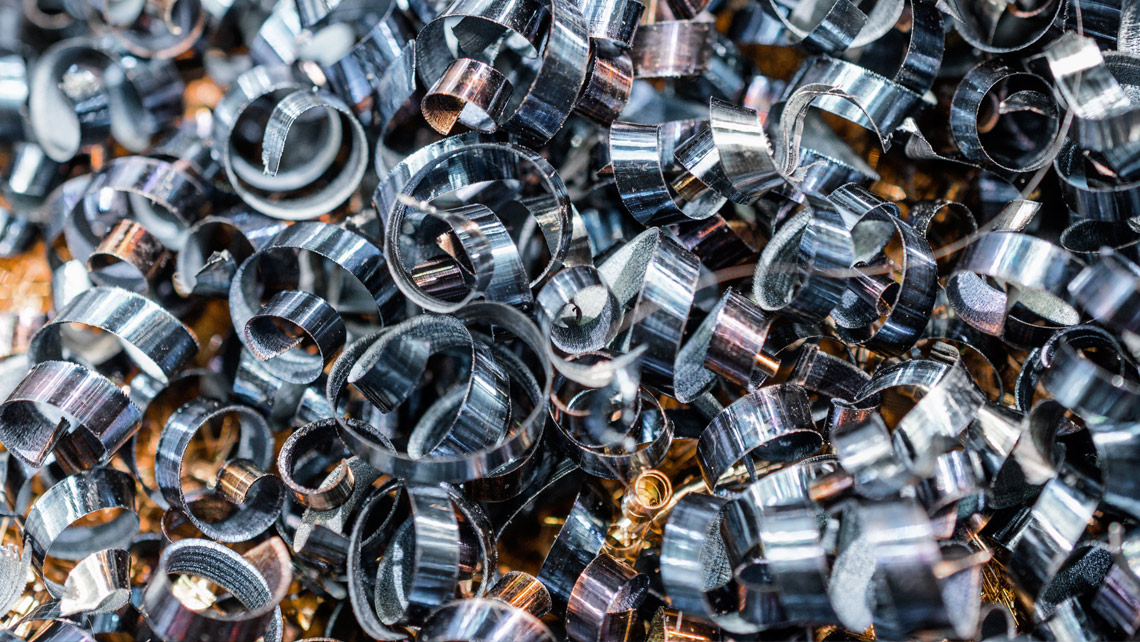Using waste to make clean water
In 2017, 23% of the raw materials used in Kemira’s global manufacturing came from recycled sources or industrial by-products. We use these materials in the production of inorganic coagulants, which are used for treating wastewater, drinking water, and in many other industrial water treatment applications. We’re proud to be able to say that in this product group an average of 70–80% of all raw materials we use come from recycled sources.
The two main by-products we use are scrap iron and spent pickle liquor (SPL) – not what’s left over in the pickle jar after you make a sandwich, but a by-product of steel manufacturing. We get these raw materials from many industries, including the steel and automotive industries.
Spent doesn’t have to mean useless
Sourced from 35 steel mills across North America, SPL is generated during pickling – a process that removes impurities and contaminants from metal before it is used to produce steel or continues on to a metal finishing process. By recycling SPL as a raw material in our production, we provide the steel mills with a financially rewarding alternative to costly disposal.
In North America, Kemira is the largest manufacturer of iron-based coagulants, and one of the partners we source SPL from is California Steel Industries (CSI).
“The reuse of SPL is a significant benefit for both CSI and Kemira. The partnership helps both parties by recycling and reusing what would otherwise be waste. We get value for a waste by-product while Kemira is able to use it in their manufacturing process,” says Kathleen Brundage, Manager of Environmental Services at CSI.
“In California, environmental regulation is very stringent, so it is vital that companies partnering with CSI take all the necessary steps to insure environmental compliance. Although the economic benefit is important, a true partnership is vital in maintaining compliance for both companies,” she continues.
As part of the partnership, Kemira also manages the pipeline to the CSI pickling system. “The SPL is pumped directly from the pickling-line tanks to the Kemira plant without the need for additional handling, transfer, or management, minimizing the risk of spills and releases.
From scrap to tap
With a 150-year history, the scrap industry is one of the first examples of circular-economy thinking. At Kemira we source scrap iron for inorganic coagulant production from many different suppliers, including car, motorcycle, and domestic appliance manufacturers. Because Kemira’s ferric chloride coagulant is used for the treatment of drinking and wastewater there are strict limits on the heavy metal content – such as chromium, zinc, nickel, and manganese – as well as on other potential contaminants. By using scrap iron in the ferric chloride manufacturing process we can reduce the amount of virgin steel that’s needed to enrich the SPL to the correct iron concentration for coagulant production.
The recycling process saves about 50,000 tons of virgin steel every year
It’s also important to remember that by recycling scrap iron in this way we are providing producers with a responsible way to dispose of it, so it’s a clear win-win situation. The recycling process saves about 50,000 tons of virgin steel every year, leading to energy savings and a positive impact on the environment.

